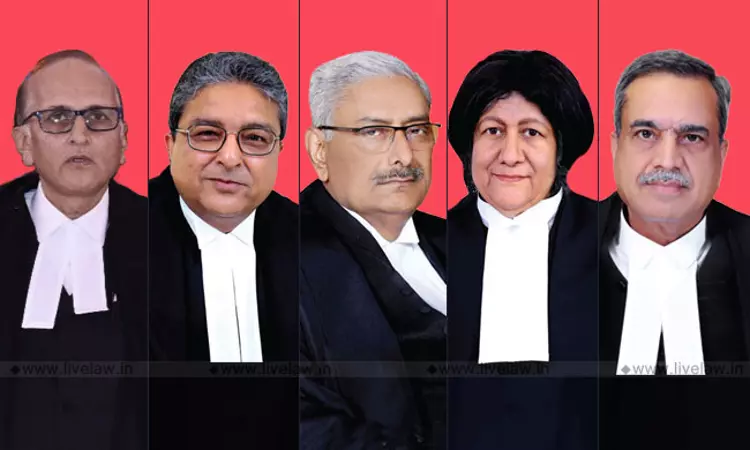SC Constitution Bench Begins Hearing On Interpretation Of Section 24 Of New Land Acquisition Act
Mehal Jain
6 Nov 2019 7:52 PM IST

Next Story
6 Nov 2019 7:52 PM IST
A Constitution Bench of the Supreme Court of India, comprising of Justices Arun Mishra, Indira Banerjee, Vineet Saran, M.R. Shah, and S. Ravindra Bhat has commenced hearing the matters relating to the interpretation of Section 24 of Right to Fair Compensation and Transparency in Land Acquisition, Rehabilitation and Resettlement Act, 2013Referring to the Proviso to section 24(2) of the 2013...
